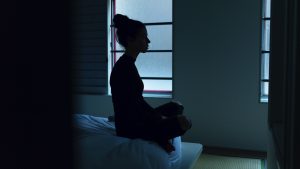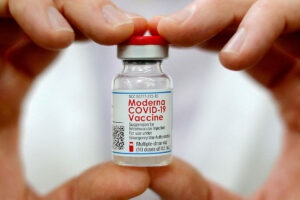Looking out for those who are not coping

More than 700,000 people die due to suicide each year and almost 77% occur in low and middle-income countries (LMICs), according to the World Health Organization (WHO).
In the Philippines, the suicide rate in 2019 was 2.5 per 100,000 population, according to the Department of Health (DoH). However, the number of suicide cases in the country went up considerably during the first year of the coronavirus disease 2019 (COVID-19) pandemic. Data from the Philippine Statistics Authority (PSA) showed that deaths due to intentional self-harm recorded a 57.3% increase to 4,420 in 2020 from 2,810 in 2019.
The WHO noted that the pandemic is increasing demand for mental health services. Bereavement, isolation, loss of income and fear are triggering mental health conditions or exacerbating existing ones. Many people may be facing increased levels of alcohol and drug use, food overindulgence, insomnia, and anxiety. Stigma related to COVID-19 infection may also lead to feelings of isolation and depression.
On Sept. 10, the International Association for Suicide Prevention (IASP) in partnership with the WHO led the global observance of World Suicide Prevention Day. The annual event raises awareness of suicide and promotes action through proven means that will reduce the number of suicides and suicide attempts globally. As with last year’s celebration, this year’s theme was “Creating Hope Through Action.”
“Suicide can affect every one of us. Each and every suicide is devastating and has a profound impact on those around them. However, by raising awareness, reducing the stigma around suicide and encouraging well-informed action, we can reduce instances of suicide around the world,” IASP said.
IASP urges everyone to look out for those who are not coping — a family member, friend, colleague or even a stranger.
Warning signs of suicide include hopelessness; rage; uncontrolled anger; seeking revenge; acting reckless or engaging in risky activities, seemingly without thinking; feeling trapped like there’s no way out; increased alcohol or drug use; eating more than usual; withdrawing from friends, family and society; anxiety; agitation; inability to sleep or sleeping all the time; and dramatic mood changes.
When people see an individual who may be at risk of suicide, they are often reluctant to intervene, for many reasons, including a fear of not knowing what to say.
It is important to remember that you don’t need to have all the answers, and there is no specific formula, IASP said. “Individuals in distress are often not looking for specific advice. Empathy, compassion, genuine concern, knowledge of resources and a desire to help are key to preventing a tragedy.”
Another factor that prevents people from intervening is the worry of making the situation worse. There is a myth that suggests talking about suicide may instigate vulnerable individuals to contemplate the idea or trigger the act. Evidence suggests that this is not the case, according to IASP.
Offering support and listening are more likely to reduce distress in vulnerable individuals, as opposed to exacerbating it. Listening with compassion, empathy and a lack of judgement can help restore hope. “We can check in with them, ask them how they are doing and encourage them to tell their story. This small gesture goes a long way,” IASP said.
Earlier this year, the DoH issued Administrative Order No. 2022-0004 stipulating guidelines for the ethical and responsible reporting of suicide in the news and broadcast media, and portrayal in films, stage, and television, as part of its efforts on suicide prevention.
“It is important that those at risk are not exposed to articles or movies that encourage or give instructions on suicide. These guidelines are one of our interventions for suicide prevention as the Department continues to develop and implement its National Strategic Plan for Suicide Prevention and Control,” said then Health Undersecretary Maria Rosario S. Vergeire.
If you or anyone you know is in need of emergency mental health support, you may contact the National Center for Mental Health (NCMH) Crisis Hotline at 1553, its Luzon-wide landline; 0917-8998727; 0966-3514518; or 0908-639-2672. The hotline provides free assistance 24 hours a day, seven days a week to individuals with mental health problems, especially those who are going through a crisis and are at risk of suicide.
Teodoro B. Padilla is the executive director of the Pharmaceutical and Healthcare Association of the Philippines (PHAP), which represents the biopharmaceutical medicines and vaccines industry in the country. Its members are at the forefront of research and development efforts for COVID-19 and other diseases that affect Filipinos.




